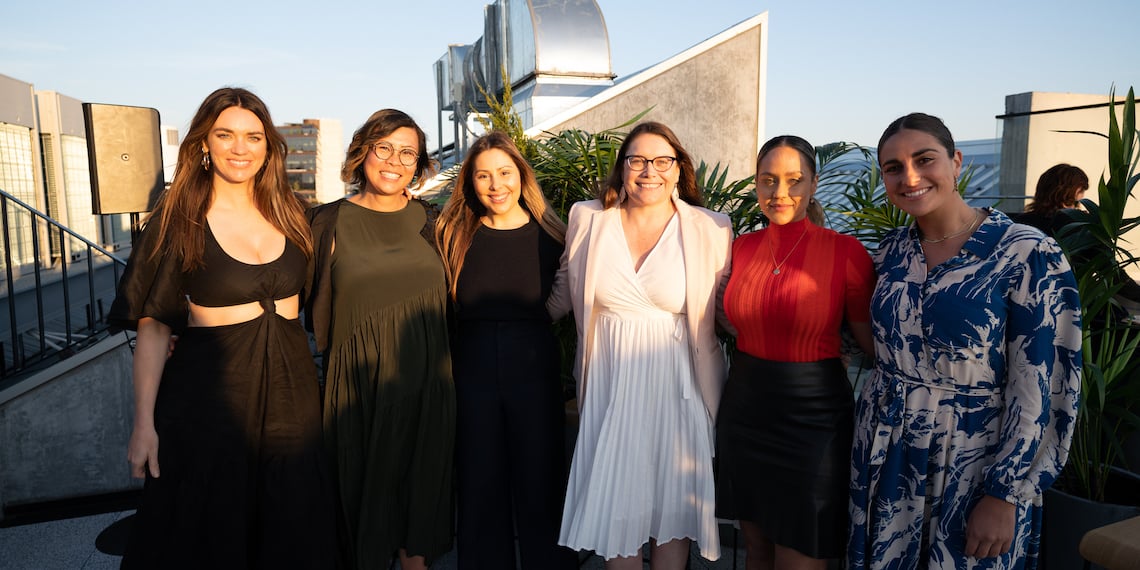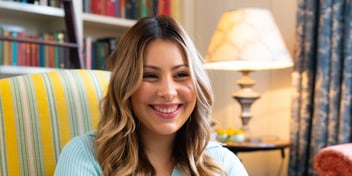National Water Week panel shines light on conserving water in the beauty industry

When consumers think about saving water, it’s usually in the context of having a shorter shower or installing water-wise appliances, but one new brand has stepped up to raise awareness around water use in the beauty industry.
In celebration of National Water Week last month, Australia's first water-responsible beauty brand, Conserving Beauty, held a Conscious Conversation event to discuss the importance of water and the beauty industry's impact on the global water shortage.
Conserving Beauty Founder and CEO Natassia Nicolao, who was also named an AWA VIC Young Water Professional of The Year award finalist, said she was honoured to be the first beauty brand invited to join the association.
“At Conserving Beauty, we live and breathe water conservation, so we are thrilled to be a part of the Australian Water Association community to continue to drive awareness and conversation about the global water crisis,” Nicolao said.
Co-hosted by eco-conscious influencer Laura Wells, the Conscious Conversation event featured a panel of experts, including AWA Deputy CEO Kirsty Blades, The Daily Aus co-founder Zara Seidler, Herbert Smith Freehills First Nations Engagement & Responsible Business Executive Barbie-Lee Kirby and Startup Victoria Chair and Giant Leap Partner Rachel Yang.
Reflecting on the National Water Week theme – Our Water Stories – Nicolao said that while most people have had to think about saving water at some point in their lives, founding Conserving Beauty was her way of bringing water-conscious thinking into the industry she loves.
“Everybody in this room, at some point in their life, will have thought about saving water. It may have been during water restrictions; you may have had to time your shower, or stop watering the garden,” Nicolao said.
“Founding Conserving Beauty has been a really special journey for me. I’ve had to make my own path in having a career in water, and it’s been an unconventional path.
“But it’s been really exciting to create our own movement within the beauty industry. Water conservation is a conversation that has been completely lacking in the industry, which is why we are dedicated to raising awareness about saving water.”
Time to talk
Despite her own awareness of the pressures of climate change and population growth on Australia’s water future, Nicolao said she often gets asked why water is her focus.
“One question I get asked is: why should we care about water? People turn on their taps, water is always available, so why should we worry about it?” she said.
“And my answer is that water is a finite resource and we can't live without it. Everything we do, use, and make requires water, including beauty products. And so why are we not thinking about ways to conserve it? Why wouldn't we safeguard our most precious resource?”
AWA Deputy CEO Kirsty Blades said while focusing on water conservation during one of the wettest years on record can be hard to reconcile for many people, it’s crucial to talk about saving water all the time.
“Yes, we’ve had a lot of rain. But this is actually the perfect time to have the conversation about water,” she said.
“Often the conversation about water doesn't happen until we are in a crisis, such as the extreme drought we had recently. During periods of increased water stress, the water conversation really elevates, but the decisions we need to make require long-term focus and effort.
“I know it's hard to prioritise making time to talk about water conservation when water is everywhere. Many of the dams are currently full, but that's not the case everywhere in Australia and we know we will see more drought in future.
“Now is a good time to think about how we will manage the next drought and keep the conversation going, because making the right decisions takes long-term planning.”
Tracking sustainability
Nicolao said she remembers the moment her passion for sustainability found its place in water – the moment that began her journey into learning everything she could about how the water is applied along the supply chain in beauty products.
“After working in ethical sourcing and supply chains in the industry, I started thinking about forming my own product. I knew that if I wanted to make a real difference, I had to start with having a transparent and traceable supply chain,” she said.
“I had an ‘aha' moment. I was in the shower and I thought: it's water. Every single pinpoint on the supply chain uses water. We need thousands and thousands of litres of water to create these beauty products.
“The beauty industry is heavily reliant on water because we always use it as the main ingredient. The majority of product formulations are 70-90% water. We are shipping plastic bottles full of water, with a small addition of preservatives and a sprinkle of the good stuff.
“But why can't we just give people products that are 100% good stuff, and go deep into the supply chain to save water along the way?”
In order to ensure her products had the lowest water footprint possible, Nicolao said she embarked on a research project working with Provenance and the Water Footprint Network to trace, track and quantify the water savings achieved by her products.
“I decided to work with the experts. I wanted to be able to do more than simply remove all the water from our products. I wanted to be able to work deeply in our supply chain and make sure our real water reliance was as minimal as possible,” she said.
Nicolao’s aim is to be able to tell consumers exactly how much water, carbon and waste is saved when they purchase Conserving Beauty products, as a way of helping consumers navigate the proliferation of sustainability claims circulating in the market – many unfounded.
“Product markets can be hard to navigate for consumers who are conscious of and dedicated to sustainability. But there is a movement occurring where businesses and platforms are trying to link evidence to their sustainability claims,” she said.
“We partnered with Providence to [fact check] every single sustainability claim that we have for our products to make sure that what we are offering is verified. We don't want to make lofty claims, we want to make sure everything is factual.
“We're about to publish our research projects. Everyone will be able to read about our water footprint, how much water we use, where it's used, and what we're doing to mitigate and reduce those numbers.”
Continuing the conversation
While Nicolao said she is dedicated to continuing to promote genuinely sustainable water practice within the beauty industry, it’s important to recognise that thinking through water in the beauty context is a conversation that will need to be nurtured and continued moving forward.
“I think we should be optimistic. There are a lot of great businesses with great products, and there are a lot of people doing great things in the sustainability space,” she said.
“And we don't intend to demonise consumers. I don't want to make people feel bad about buying things that they like.
“What I would like to see is more traceability and transparency from businesses. I’d love to see consumers asking more questions and being given the opportunity to do that in an open way.”



